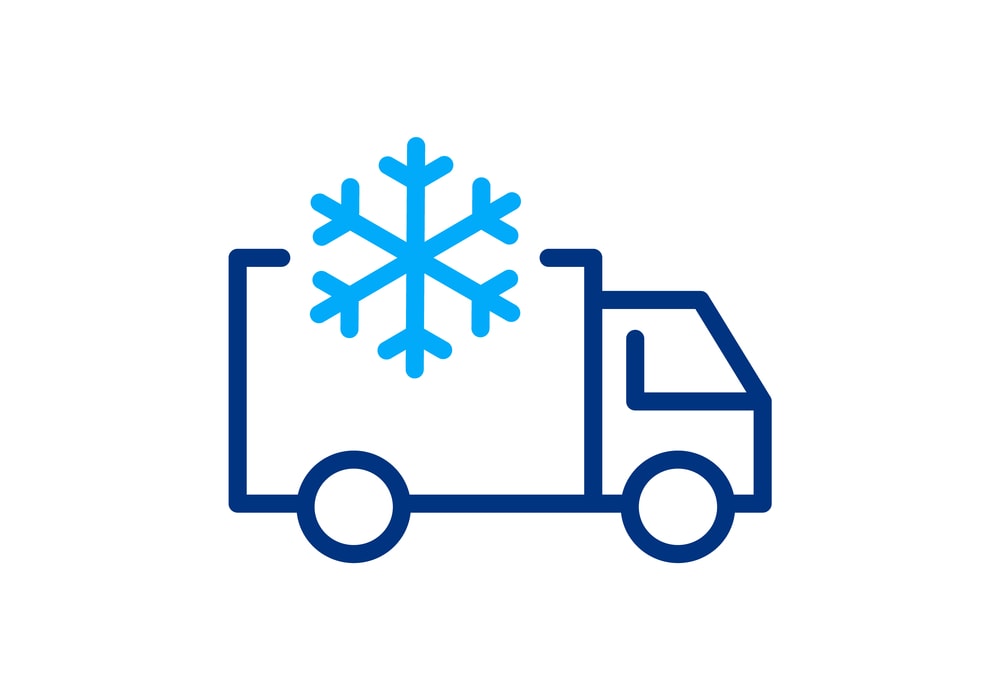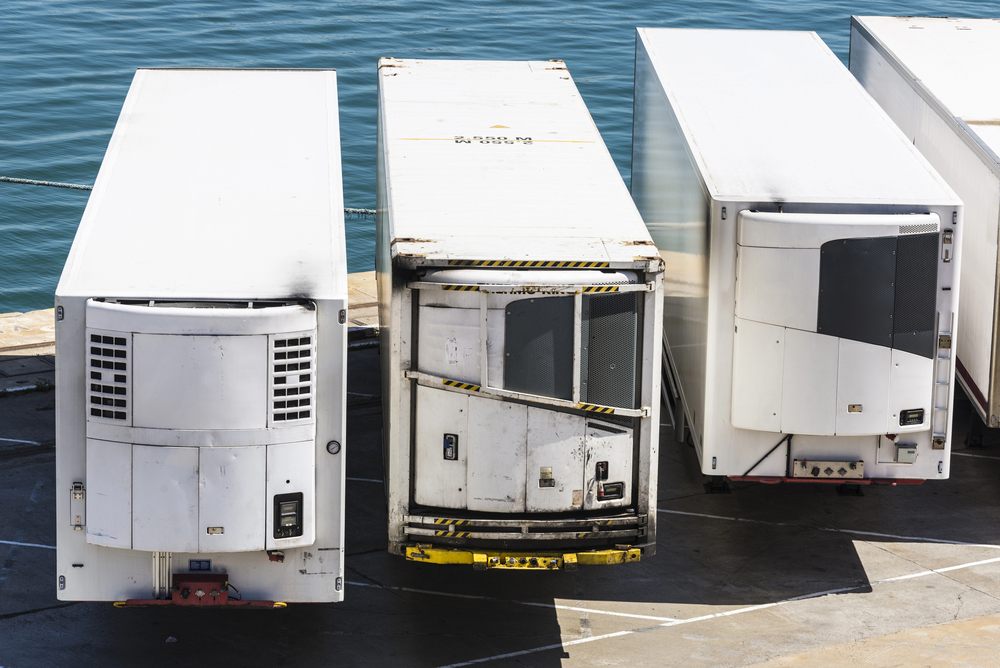At ShipEX Logistics, we understand the effect that grocery shipping has on the modern supply chain. From fresh produce in season to frozen foods and other perishables, hauling these items calls for advanced planning and attention to detail to keep them fresh for consumer use. Grocery shipping stands at the center of getting quality products from farms and factories onto store shelves, no matter the distance of travel involved.
Refrigerated shipping has become a very wonderful solution for making sure that these temperature-sensitive shipments arrive in good condition. Equipped with advanced refrigeration trailers, we can move produce, frozen foods, and other perishable items while preserving each shipment appropriately throughout transport. This will help retailers provide the quality their customers can expect.

The Role of Refrigerated Trailers in Grocery Shipping
With temperature-controlled trailers, companies are now able to move perishable goods such as produce, meat, and frozen foods long distances without spoiling. The refrigerated trailer-invented in the 1920s and known simply as a “reefer”-revolutionized the logistics marketplace by enabling the safe transportation of temperature-sensitive cargo. That technology has continued to evolve to this day. Because of that, grocery stores can maintain fresh products throughout the year without regard to season or geographic location. It isn’t just groceries, though industries like pharmaceuticals and chemicals also depend on these trailers to keep their products at the right temperature. It’s had huge implications on how we move goods around.
Temperature regulation is fundamental to prevent spoilage and ensure the quality of the product. Refrigerated freight or temperature-controlled shipping allows for a wide range of perishable items, from fresh fruits and vegetables to frozen meats and dairy products, to be shipped. By keeping grocery items within the proper temperature during shipping, the grocery industry has made sure that high-quality products arrive at stores ready for consumers.

Evolution of Refrigerated Trailers in Grocery Shipping
Refrigerated trucks have come a long way in grocery shipping. Back in the day, people used simple tricks like ice and salt to keep food fresh. But as technology has improved, we now have well-insulated containers and thermal blankets that do a much better job at controlling temperatures. These advancements have shaped the cold chain we rely on today, allowing businesses to transport temperature-sensitive products over longer distances with confidence.
Technology has also revolutionized the concept of cold chain, just as it has been improving the way we track and handle grocery shipments. Today, every refrigerated truck is equipped with temperature monitoring solutions that let us know the real-time temperature conditions inside the trailer. This gives companies complete control over cold chain maintenance and helps them to track shipments even more accurately from the beginning of delivery until the end. In the past, cold chains mainly depended on ice to keep shipments cool. Today, they use advanced insulation and smart technology, making the entire cold chain more reliable than ever for keeping perishables fresh from supplier to store.

The Science Behind Refrigerated Transportation
Refrigerated transportation is what makes sure perishable goods stay fresh while on the road. Keeping the right temperature from start to finish helps prevent things like produce, dairy, and meat from spoiling, so they arrive just as they should. It’s all about controlling the temperature to protect the quality of the goods, from loading to delivery.
Different perishables have different temperature requirements-for instance, fresh produce is usually kept above freezing, while meat has to be much colder to prevent bacterial growth. Even pharmaceuticals, which can be so sensitive, may require narrow bands of temperature control to maintain effectiveness during transportation. This understanding enables us to safely move a wide range of perishables.
Packaging materials such as insulated containers and thermal blankets are necessary for keeping products at their best. They help in regulating trailer temperatures for further protection of items needing cool or warm storage. We go to great lengths to choose appropriate packaging with attention to temperature control so everything may arrive fresh and ready to be enjoyed by the customer.

Benefits of Refrigerated Trucking for Grocery Shippers
Refrigerated trucks have helped grocery shippers save money by reducing waste and spoilage. Keeping the produce and meat at a proper temperature, the refrigerated trucks prevent products from spoiling in transit, saving a business from losses for items that would be spoiled. This is usually a big factor for businesses with slim margins, as minimizing the waste means being more productive with their inventory and resources.
Proper management of the cargo loads is extremely important. The proper packaging materials and insulation can protect the products to maintain their quality during the journey. When managing freight and costs, temperature-controlled shipping offers a way to preserve product freshness without breaking the bank. This is more helpful for both shippers and customers because, on arrival, they will get fresh products in good condition. Refrigerated trucking is one of the smartest ways in which grocery businesses can remain competitive and keep costs in balance.
The Future of Refrigerated Shipping in the Grocery Industry
Exciting cold chain innovations are in store for the future of refrigerated shipping within the grocery industry. With the help of new tracking and monitoring technologies, it’s now easier to maintain the right temperature throughout the supply chain, which plays a major role in keeping groceries fresh while they’re being transported. The progress of these tools will allow businesses to gain even better control of temperature-sensitive shipments, reducing spoilage as well as enhancing the quality on delivery.
The demand for refrigerated freight is on the rise, driven by growing industries like pharmaceuticals and the need for reliable shipping solutions. We expect further development in the world of temperature control and logistics of supply chains because consumers are asking for more and more fresh and high-quality products. This will help businesses better meet the growing demand for refrigerated shipping, ensuring their goods arrive in the best possible condition. At ShipEX Logistics, we are very excited about what the future of refrigerated shipping holds and the benefits it will have for our clients and their customers.

Practical Solutions for Grocery Shippers
Using the right equipment and techniques keeps products at the right temperature until they reach their destination. Thermal blankets are often used to wrap items that need extra protection from temperature changes, like dairy products, fresh produce, and pharmaceuticals, to help keep them at their ideal temperature. In any event, when a full reefer trailer is not required or available, finding the right carrier is of utmost importance. Proper management of loading and transit will also go a long way in preventing spoilage and reducing waste.
Having appropriate temperature-controlled shipping and tracking solutions saves money for grocery shippers. Through the help of a carrier offering various options for temperature control, a business can select an appropriate solution without having to pay for services that are not required. Advanced tracking systems enable the shipper in real time to be aware of when conditions in the shipment may be compromised, giving them opportunities to take corrective action. These are some strategies to prevent spoilage, optimize cost, and preserve the quality of shipped goods.

Conclusion
Refrigerated trucking in grocery is a real game-changer, carrying fresh produce, meat, and dairy items and keeping them fresh instead of spoiled. By preserving quality through temperature control from pickup through delivery, refrigeration in the transportation of groceries has significantly reduced wastage and spoilage.
With technology continuing to evolve, even further refinements are being made to cold chain logistics, further pinpointing temperature control and tracking. Remaining current on state-of-the-art best practices regarding refrigerated transportation will go a long way for any business intending to enhance its shipping process in one way or another. At ShipEX Logistics, we invite you to take a closer look at our refrigerated transportation services, built to bring quick, timely solutions to your grocery shipping needs.




